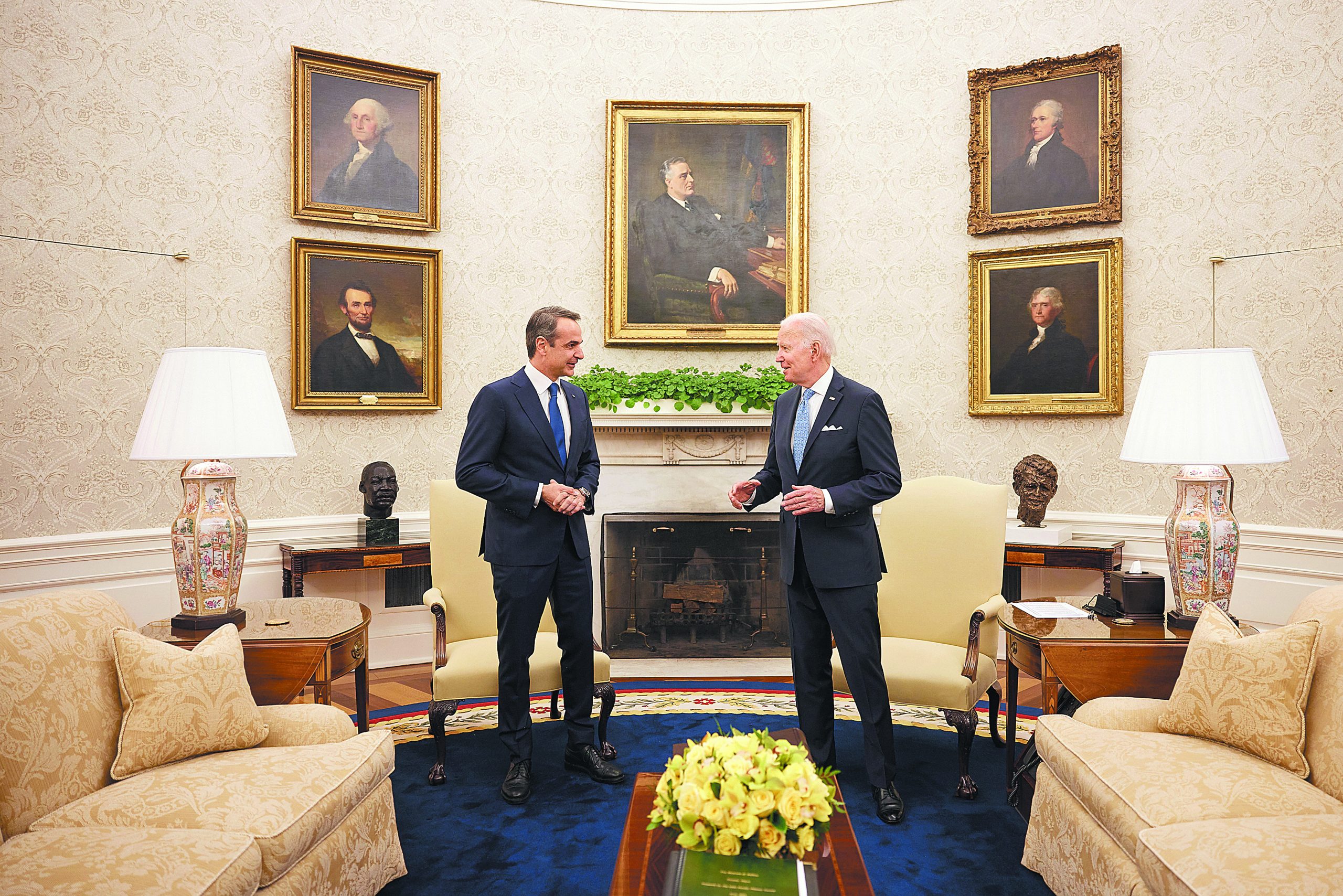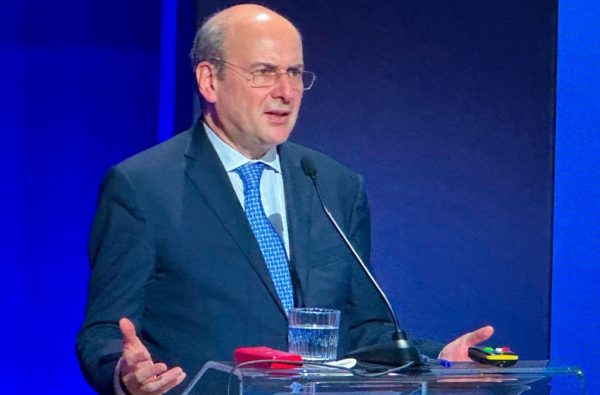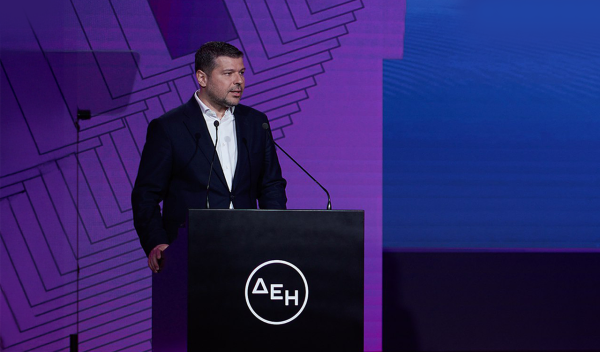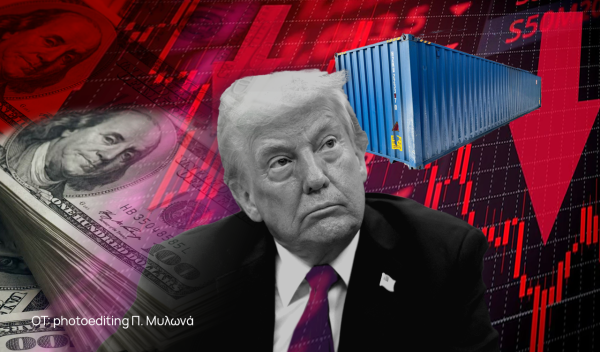
Kyriakos Mitsotakis’s visit to Washington last week, his meeting with President Joe Biden at the White House on Monday, and his historic speech to Congress on Tuesday were a difficult and arduous task to accomplish. The initial goal of the effort was for the arrival of the Prime Minister to take place within 2021 and to be combined with the 200 years since the proclamation of the Greek Revolution of 1821. However, the pandemic had other plans. And when COVID-19 ceased to be the “number one” deterrent, a new and perhaps more difficult one emerged: Russia’s invasion of Ukraine, which overturned all certainty on the international stage, as well as the US government’s priorities.
Crucial access to the centers of power
However, the goal was eventually achieved. And those who have been to the US capital in recent days have realized that Athens has critical access to the centers of power. Six years after Greek-American relations focused on deepening defense cooperation – as evidenced by what is happening today in Alexandroupolis – the next stage seems to be a closer energy relationship that may lead to the implementation of a plan to transform Greece into a regional hub. This could allow Greek foreign policy to cease to be heterogeneously determined by Turkey’s choices, as some are unilaterally seeking.
Operation Washington
According to “To Vima” newspaper sources, operation “Washington” was something that few knew of the details and behind-the-scenes consultations. Only two people knew the case and its course from its initial stage: the Prime Minister himself and his close associate, the Greek Ambassador to Washington Alexandra Papadopoulou, in whom Mr. Mitsotakis has absolute confidence and even whom he publicly praised in Parliament in the recent debate on the ratification of the Mutual Defense Cooperation Agreement (MDCA).
The key role of Greek Americans
The group that helped deliver the emblematic – despite criticism at home – speech before the joint meeting of the House of Representatives and the Senate at the Capitol on May 16 (bearing the personal seal of the Prime Minister, who reportedly confided in 2-3 persons of his absolute trust), but also to overcome the obstacles raised by various persons of the American side had at its core key figures of the Greek-American community: people proven and successful, who moved quietly, picked up the phone when needed and spoke to key figures when the need arose.
After the initial “ice” that was de facto imposed by the pandemic, the operation regained momentum last fall. Some initial contacts by the Prime Minister, away from the limelight, took place last September on the sidelines of the UN General Assembly in New York in order to highlight to his interlocutors his thoughts and vision for the visit. Throughout the process, a man who helped catalyze was Alexandros Karloutsos. A person with an excellent knowledge of human geography in the American centers of power, better known in political, business and journalistic circles as “father Alex” has been the general director of the Archdiocese of America for the last 30 years. He was the one who, when necessary, picked up the phone and spoke with President Biden and people close to him to overcome difficulties – and not just bureaucratic – that had arisen and involved people who did not view the Mitsotakis visit very positively, even when the relevant dates had been given by the White House for his arrival in Washington.
They were the same people who initially thought there would be no… problem with Turkish Foreign Minister Mevlüt Çavuşoλουlu being in Washington on the same days as Mr Mitsotakis to meet with Anthony Blinken – before the meeting was finally moved to New York, where the two men on the occasion of an immigration forum. But Joe Biden wanted the visit to take place and his order was catalytic. As for how much he wanted it, a look at the warm words he said at the reception that followed the meeting with Mr. Mitsotakis, on the afternoon of Monday, May 16, speak for themselves.
The main aim of the Greek side and the Prime Minister personally was not to Turkify the visit and the meetings with both Biden in the White House and key interlocutors in Congress. This is not to say that Ankara’s behavior in the Eastern Mediterranean was not one of the main topics of discussion (and its stance on Finland and Sweden’s NATO bid showed, rather starkly, how “annoying” Ankara can become). The aim, however, was to highlight the importance of Greece as a regional actor that can contribute reliably to the promotion of Western interests, with which the Greeks are identified.
F-16 for Turkey
In this broader context, the case of the Turkish F-16s has particular sensitivities. State Department circles eagerly push for package purchase of 40 F-16 Block 70s and modernization of 80 older F-16s for Turkish Air Force due to Turkey’s exit from F-35 coproduction program, but credible sources point out that this will not be easy at all.
The Biden administration’s recent briefing to Congress on some F-16 components and weapons concerns a previous request made by Ankara during the Trump presidency, although it is unclear whether parts of it coincide with the Turkish side’s latest request.
It is clear, according to well-informed sources, that the last six years of Greek-American relations, both during SYRIZA in the period 2016-2019 and during New Democracy after 2019, were characterized by great activity in matters of defense and security. During this time, two amendments to the MDCA Protocol took place, accompanied by two letters from US Secretary of State Mike Pompeo and Anthony Blinken, offering “political assurances” of respect for our sovereignty and rights. The major change, however, was the gradual transformation of Alexandroupolis into a “Northern Souda,” a base hub for American and Western interests, as its usefulness in the Russo-Ukrainian war reveals. It is not excluded that the American presence both in Alexandroupolis and in other areas may take on more permanent characteristics.
The supply of F-35s
As experienced officials noted in “Vima”, Athens and personally the Prime Minister realize that at the moment a kind of “paradigm shift” is taking place worldwide. In this context and given the constant Turkish threat in the Eastern Mediterranean, the Greek side attaches great importance to hard power. This is why after the pivotal decisions of upgrading 85 F-16 aircraft to the Viper version (Block 70) and the one that will follow, according to all indications, of the F-16 Block 50 to Block 52+ Advanced, Athens is expected to send a Letter of Request (LoR) regarding the supply of one squadron (20 or 24) of 5th generation F-35 aircraft.
This thought, which is not new, moves in a line, which “To Vima” has described in the past. Given that a) the negotiations on the supply will require a period of 18-24 months, as government sources pointed out, b) after 2026 the payments for the upgrade of the F-16 in the Viper version will decrease dramatically and c) that the Greek side must move immediately as there are many orders in the series, the year 2028 seems like the most likely for the arrival of the first F-35 in our country. The entire design must take into account the high cost of the aircraft, which is close to 80 million dollars each. Lockheed Martin’s written proposal for the acquisition of a stake in the Hellenic Aviation Industry (Hellenic Aviation Industry) constitutes an additional vote of confidence. However, it is difficult to have a substantial co-production of the F-35s as the hard truth is that Athens has lost many times in the past the opportunity to become part of the consortium that builds the aircraft.
Drones and helicopters
This does not mean that the F-35s are the only part of the design, as in the Greek Pentagon and in the staff of Nikos Panagiotopoulos there are advanced thoughts for strengthening the Greek arsenal in areas that are currently identified gaps and more specifically in transport aircraft and helicopters (Black Hawk and Chinook) that Athens could procure from the USA. And of course, Athens will insist, as “To Vima” had revealed as early as February, on the supply of three MQ-9 Reaper.
Pressures to bend the resistors
It was not only Karloutsos who played a key role in the visit. Real estate mogul George Markus, Angelos Tsakopoulos (and his daughter and California vice-governor Eleni Tsakopoulou-Kounalaki, who maintains a personal friendship with Vice President Kamala Harris), Andy Manatos, a close friend and generous financier , Dennis Mills, formed, according to the information of “Vima” , a Greek-American “dream team”, a core of people who, especially after November 2021, pressed persistently and effectively to bend the resistance. The “investment” that the Greek side has made in recent years in Congress has also proved to be very important. The powerful chairman of the Senate Foreign Relations Committee, Robert Menendez, “threw his weight” behind the visit, as did MP Gus Bilirakis, but also Eddy Zemenidis, head of the Hellenic American Leadership Council (HALC).
Latest News

Trump Tariffs Jeopardize Growth: Piraeus Chamber of Commerce
The tariffs, aimed at reducing the U.S. trade deficit, are expected to have both direct and indirect effects on the European economy

EU Condemns Trump Tariffs, Prepares to Retaliate
As tensions escalate, the EU is expected to continue negotiations with Washington while preparing for potential economic retaliation.

The Likely Impact of Trump Tariffs on Europe and Greece
Trump tariffs are expected to negatively affect economic growth in the Eurozone while Greece's exports could take a hit.

Motor Oil Results for 2024: Adjusted EBITDA of 995 mln€; Proposed Dividend of 1.4€ Per Share
Adjusted EBITDA for 2024 was down 33% yoy. The adjusted profit after tax for 2024 stood at 504 million euros, a 43% decrease from the previous year

Cost of Living: Why Greece’s 3% Inflation Is Raising Alarm
Greece appears to be in a more difficult position when it comes to price hikes, just as we enter the era of Trump’s tariffs.

Fitch Ratings Upgrades the Four Greek Systemic Banks
NBG’s upgrade reflects the bank’s ongoing improvements in its credit profile, Fitch notes in its report, including strong profitability, a reduction in non-performing exposures (NPEs), and lower credit losses

Trump to Announce Sweeping New Tariffs Wednesday, Global Retaliation Expected
With Trump's announcement just hours away, markets, businesses, and foreign governments are bracing for the fallout of one of the most aggressive shifts in U.S. trade policy in decades.

Inflation in Greece at 3.1% in March, Eurostat Reports
Average inflation in the eurozone settled at 2.2%, compared to 2.3% in February

Greece’s Unemployment Rate Drops to 8.6% in February
Despite the overall decline, unemployment remains higher among women and young people.

Jerry Kalogiratos Highlights Key Role of Energy Transition and Data Demand in LNG Outlook
Energy transition and the prospects of LNG were discussed at Capital Link’s 19th Annual International Maritime Forum, during a panel discussion with Jerry Kalogiratos (Capital Clean Energy Carriers Corp.)
























![ΕΛΣΤΑΤ: Αυξήθηκε η οικοδομική δραστηριότητα κατά 15,6% το Δεκέμβριο [πίνακες]](https://www.ot.gr/wp-content/uploads/2025/03/DSC9655-2-1024x569-1-90x90.jpg)

















 Αριθμός Πιστοποίησης
Αριθμός Πιστοποίησης